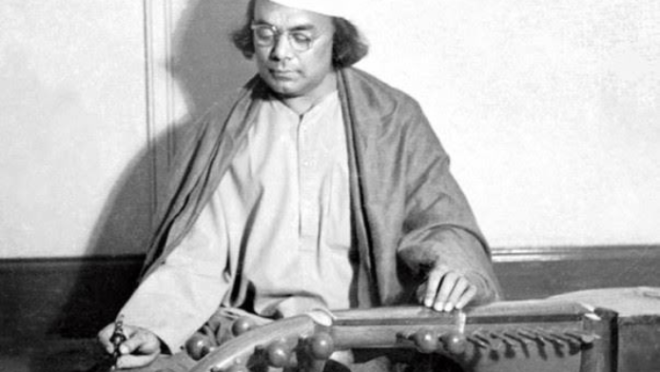Remembering Kazi Nazrul Islam: A birthday tribute to the rebel poet
Remembering Kazi Nazrul Islam: A birthday tribute to the rebel poet

Today, on 24 May, Bangladesh and all Bengali-speaking people around the world lovingly celebrate the birthday of our national poet, Kazi Nazrul Islam.
Born in 1899 in a small village, Nazrul, often called the ‘Rebel Poet’ (Bidrohi Kobi), is a huge figure whose powerful words, brave ideas, and beautiful songs are deeply tied to Bangladesh’s culture and who we are as a nation.
Nazrul’s early life was very hard and full of sadness. This is why people called him ‘Dukhu Miah’ (the one with grief). He lost his father when he was young, forcing him to work many different jobs. Struggle was a consistent part of his entire life.
These tough times made him truly understand and care for people who were suffering, and it made him want justice for everyone. He also spent time with local theatre groups, which helped him learn about writing poems, songs, and acting, preparing him for his amazing artistic journey.
The powerful voice of rebellion and freedom
The most famous part of Nazrul’s lasting memory is his strong and fiery poetry, which rightfully earned him the name “Rebel Poet.” His most well-known poem, “Bidrohi” (The Rebel), written in 1921, shook the whole region.
It was a loud cry against British rule and any kind of unfairness. In “Bidrohi,” he proudly declared himself a powerful force of nature, ready to break all chains of unfairness and oppression.
His works like “Bhangar Gaan” (The Song of Destruction) and his bi-weekly publication “Dhumketu” (The Comet) directly challenged the colonial powers, leading to his imprisonment. For example, after “Dhumketu” published his revolutionary poem “Anondomoyeer Agomone” (“On the Arrival of the Blissful One”), the police raided its office, and Nazrul was arrested for sedition.
Even from jail, he kept fighting, famously writing “Rajbandir Jabanbandi” (A Political Prisoner’s Statement), which was a fearless stand against injustice.
Several of his books, such as “Bisher Banshi” (The Flute of Poison) and “Pralay Shikha” (The Flame of Destruction), were banned by the British government due to their revolutionary content.
For Bangladesh, Nazrul’s daring spirit and firm stand against unfairness were a huge source of courage during our own fight for independence in 1971.
A master of music: Nazrul shongit
Besides his powerful poems, Nazrul’s contribution to Bengali music is immense and transforming. He wrote nearly 4,000 songs, known as Nazrul Geeti (Songs of Nazrul). He completely changed Bengali music by cleverly mixing folk music with classical and religious styles.
He was also the first to bring the ghazal—a form of love song—to Bengali music. “Daraley Duarey” is one of his most famous ghazals, which got a Coke Studio Bangla rendition back in 2023. He was, indeed, incredibly talented.
He effortlessly wrote many different kinds of songs, including deeply moving Islamic devotional songs and inspiring Hindu prayers (bhajans and kirtans).
This special mix of music and themes showed his strong belief that people of all faiths should live together in peace. His songs, like “Karar Oi Louho Kopat” (The Iron Gates of the Prison), became freedom anthems, while “Chol, Chol, Chol” (March Forward) is still a popular marching song that inspires people today.
A champion for all people and fairness
Nazrul was a strong advocate of fairness, equal rights, and people of all backgrounds getting along. His writings strongly spoke out against any kind of prejudice, whether it was based on religion, social class, or gender.
He stood up for women’s rights, which was a very advanced idea for his time. In his poem “Naari” (Woman), he famously emphasised that women contribute equally to all great achievements alongside men.
He also bravely shared the struggles of the poor and forgotten people in poems like “Daridro” (Poverty), seeing poverty not as a weakness but as a source of inner strength and purity that made him outstanding.
In his works, he strongly criticised extreme religious views and wealth-based differences, advocating for a society that treats everyone equally. In “Manush” (Human Being), he proclaimed his belief in equality, stating that no one is greater than another human being.
An ever-present figure in Bangladesh
Kazi Nazrul Islam had a deep and historical bond with Bangladesh. After Bangladesh became independent in 1972, the new country brought the ailing poet to live in Dhaka from India.
He was later given Bangladeshi citizenship in 1976. In a big move, the government officially named him the National Poet of Bangladesh in December, 2024, making this title effective from 1972. He passed away in Dhaka in August 1976 and, as per his wish expressed in one of his songs, was buried next to a mosque on the University of Dhaka campus.
Today, on his birthday, cultural groups, schools, and government offices all over Bangladesh organise many events. They hold discussions, musical performances, and literary tributes to honour his amazing life and works.
His poems and songs continue to inspire artists, musicians, and theater groups, showing how his messages of bravery, love, and humanity are still important today. Kazi Nazrul Islam is not just a poet like any other; he is a lively, living force in the hearts of all Bengalis.


